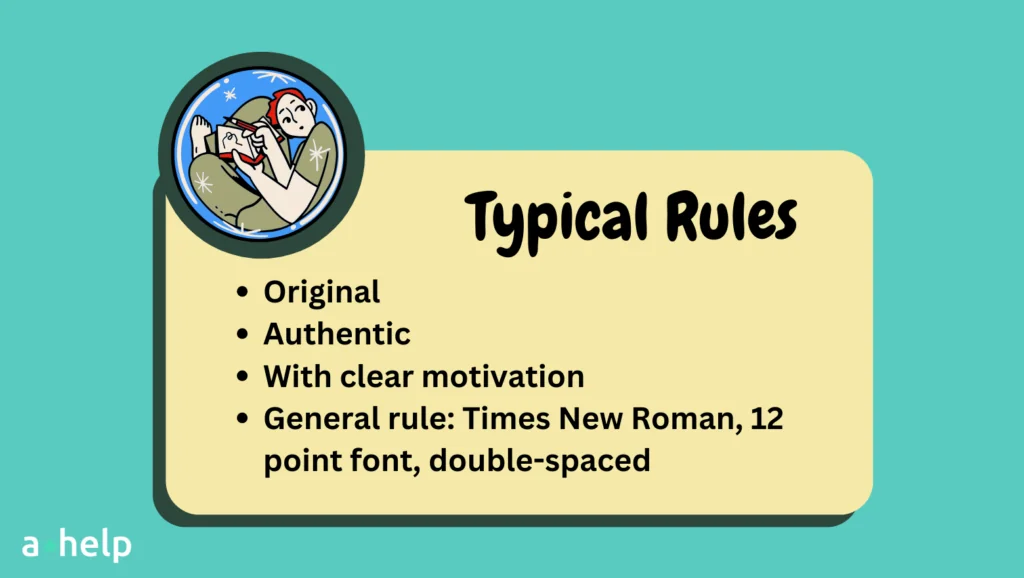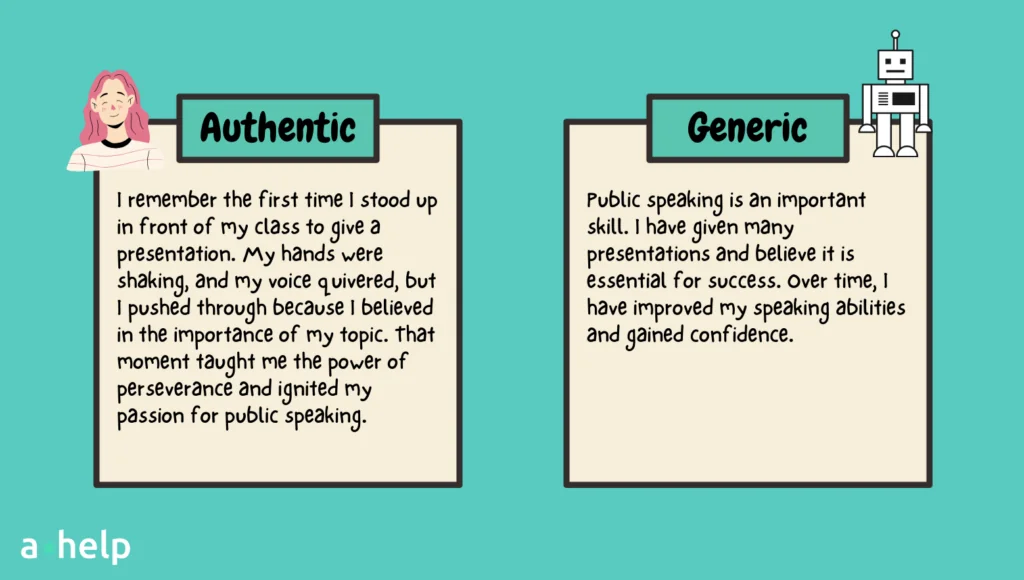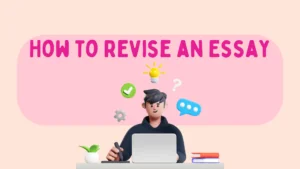Writing a scholarship essay can feel like a big challenge, but the secret to success lies in how you start. A powerful beginning can grab the reader’s attention and set the mood for the rest of your essay. Think of your introduction as your first impression; you want it to be memorable and engaging.

✅ AI Essay Writer ✅ AI Detector ✅ Plagchecker ✅ Paraphraser
✅ Summarizer ✅ Citation Generator
In this guide, we’ll walk you through some practical tips and strategies to kick off your scholarship essay with confidence. We’ll cover everything from understanding the prompt to crafting an attention-grabbing hook. Whether you’re writing about your achievements, goals, or a significant experience, these tips will help you start your essay in a way that stands out.
What Is a Scholarship Essay?
A scholarship essay is a piece of writing you submit to a scholarship committee, showcasing why you deserve financial support for your education. Think of it as your chance to tell your story and stand out among other applicants. These essays can cover a wide range of topics, from your personal achievements and career goals to your community involvement and the challenges you’ve overcome.
Scholarship essays are typically used in applications for various educational grants and funding opportunities. Universities, colleges, and private organizations often require them as part of the application process. The idea is to give the committee a glimpse of who you are beyond your grades and test scores.

Basically, a scholarship essay is your opportunity to shine and make a compelling case for why you should receive financial support.
How to Start a Scholarship Essay – Read Your Prompt Once More
Starting a scholarship essay can be a bit tricky, but the first step is to read your prompt thoroughly. If you miss any part of the prompt, you might not address all the requirements, which can hurt your chances.
Begin by reading the prompt several times. Look for keywords that tell you what the committee is looking for. For example, if the prompt asks you to discuss a challenge you’ve overcome, focus on that specific experience. Break down the prompt into smaller parts. If it has multiple questions or components, make a list of each one. This way, you can make sure you cover everything.
Ask yourself what the prompt is really asking. Are they interested in your leadership skills, community involvement, or personal growth? Once you understand the main focus, brainstorm ideas and jot down notes.
Now, you can craft a scholarship essay that is well-organized and directly addresses what the committee wants to see. Remember, a great essay starts with a clear understanding of the assignment, so take your time with this step. It can make all the difference!
Now, let’s look at some examples of prompts and what you can write.
How to Begin a Scholarship Essay and Not Lose Your Voice
Starting a scholarship essay can be intimidating, but the most important thing is to be genuine and true to yourself. Your unique voice is what will make your essay stand out. Committees want to hear your personal story and understand who you are beyond your achievements and grades.
To let your personality shine, start by writing in a style that feels natural to you. Avoid trying to impress with overly complex words or stiff formal language. Instead, think about how you would explain your story to a friend. Use vivid details and emotions to bring your experiences to life. Also, don’t shy away from showing vulnerability; sharing your struggles and how you overcame them can make your story more relatable and impactful.

The first example is engaging because it tells a specific story and shows personal growth. The second example is bland and lacks personal touch. Remember, your story and voice are your strengths, so let them shine through your writing.
3 Key Elements: How to Start an Essay for a Scholarship
It is less intimidating if you focus on three key elements can make it much easier: getting your readers’ attention, providing an overview, and listing a thesis statement. Let’s dive into each of them.
1. Get Your Readers’ Attention
The first thing you need to do is hook your readers. Imagine your essay is a story you’re telling a friend. You want to start with something that grabs their interest right away. You can use an anecdote, a surprising fact, or a thought-provoking question. For example, “Have you ever felt so passionate about something that it kept you up all night?” This approach makes your reader curious and eager to learn more about you.
2. Provide an Overview
After grabbing attention, give your readers a brief overview of what your essay will cover. This is like giving them a roadmap of your thoughts. Keep it short and to the point, setting up the main points you’ll discuss. For instance, “In this essay, I will share how my volunteer work at the local animal shelter shaped my career goals, taught me valuable lessons, and inspired me to pursue a degree in veterinary medicine.” This helps your readers know what to expect and keeps them engaged.
3. List a Thesis Statement
Finally, include a clear thesis statement. This is the main idea or purpose of your essay, condensed into one sentence. Your thesis should reflect your goals and what you aim to achieve with the scholarship. For example, “My goal is to combine my passion for animal welfare with my academic pursuits, ultimately contributing to advancements in veterinary care.” A strong thesis gives your essay direction and helps the reader understand your motivations.
| Have you ever felt a rush of excitement mixed with nerves while holding a tiny, trembling puppy? This feeling struck me the first time I volunteered at the local animal shelter. In this essay, I will share how my experiences at the shelter not only shaped my career goals but also taught me valuable lessons about responsibility, empathy, and the importance of community service. My goal is to combine my passion for animal welfare with my academic pursuits, ultimately contributing to advancements in veterinary care. Through this scholarship, I hope to gain the knowledge and skills necessary to make a meaningful impact in the lives of animals and their owners. |
Tips on Starting Your Scholarship Essay
Here are some detailed tips to help you make an engaging introduction that will grab the reader’s attention and set the tone for the rest of your essay.
 Describe a Challenge and Your Response
Describe a Challenge and Your Response
One powerful way to start your scholarship essay is by describing a challenge you have faced and how you responded to it. This approach not only grabs attention but also showcases your resilience and problem-solving skills. For example, you might begin with:
“At sixteen, I found myself responsible for my younger siblings when my single mother fell ill. Balancing schoolwork, household duties, and part-time jobs taught me the value of time management and perseverance.”
This opening sets the stage for a deeper discussion of your character and experiences, helping the reader connect with your story on a personal level.
 Use Buzzwords from the Prompt
Use Buzzwords from the Prompt
Using keywords from the scholarship prompt in your introduction can show that you have carefully read and understood the requirements. This also helps tailor your essay to fit the specific criteria of the scholarship. For example, if the prompt emphasizes leadership and community service, you might write:
“Leadership and community service have always been central to my educational journey. As president of the student council, I spearheaded initiatives that improved student engagement and fostered a sense of community.”
This way, you signal to the reader that you are addressing the scholarship’s core values.
 Compare Yourself to the Scholarship Namesake
Compare Yourself to the Scholarship Namesake
If the scholarship is named after a notable person or is given in memory of someone, drawing a parallel between their qualities and your own can be very effective. This can show that you embody the values the scholarship aims to promote. For example:
“Like Dr. Jane Smith, whose legacy of compassionate medical care inspires this scholarship, I have dedicated myself to volunteering at local clinics to provide healthcare to underserved communities.”
This honors the namesake and aligns your goals and experiences with the scholarship’s mission.
 State a Surprising Fact
State a Surprising Fact
Starting with a surprising fact can immediately capture the reader’s interest and set your essay apart from others. Make sure the fact is relevant to your story and the scholarship’s focus. For instance:
“Did you know that only 5% of foster children graduate from college? As a former foster child, I am determined to change that statistic by pursuing a degree in social work.”
This approach grabs attention and also highlights your personal connection to an important issue.
 Highlight Your Motivation
Highlight Your Motivation
Explaining what motivates you to pursue your goals can provide insight into your passions and drive. This helps the reader understand what makes you unique and why you deserve the scholarship. For example:
“My passion for environmental science began when I joined a local cleanup initiative in middle school. Witnessing the impact of pollution on our beaches motivated me to pursue a career dedicated to preserving our planet.”
You give the reader a glimpse into what drives you and why you are committed to your chosen path by sharing your motivation.
 Include a Thesis Statement as the Last Sentence of Your Intro
Include a Thesis Statement as the Last Sentence of Your Intro
A clear thesis statement at the end of your introduction provides a roadmap for your essay. It sums up your main point and sets the stage for what you will discuss. For example:
“My goal is to leverage my experiences and passion for community service to become a healthcare professional who bridges the gap in medical access for underserved populations.”
This thesis not only ties together your introduction but also outlines the focus of your essay, guiding the reader on what to expect.
How to Start Off a Scholarship Essay – Common Mistakes to Avoid
Don’t use big words just to sound smart. It’s tempting to throw in complex vocabulary to impress the scholarship committee, but this can backfire. Your essay should be clear and easy to read. Instead of trying to sound sophisticated, focus on expressing your thoughts in a way that is genuine and straightforward. Remember, the committee wants to hear your voice, not a thesaurus.
Starting with someone else’s quote can be risky. While a well-chosen quote can sometimes enhance your essay, it often ends up sounding clichéd or impersonal. It’s your essay, so let your own words lead the way. If you do use a quote, make sure it directly relates to your story and you quickly connect it to your own experiences. Otherwise, it’s better to start with something original that showcases your unique perspective.
Avoid obvious statements like, “I am very interested in this scholarship.“ These kinds of statements are redundant and take up valuable space in your essay. The fact that you are applying already shows your interest. Instead, use this space to delve into specific reasons why you are passionate about your field or how the scholarship will help you achieve your goals. Show, don’t just tell.
Don’t start by introducing yourself. Your name and background information will be included in other parts of the application. Jumping straight into your story or main point is much more engaging. For instance, rather than starting with, “My name is John, and I want this scholarship because…,” try beginning with a compelling anecdote or a powerful statement about your journey.
You can create a stronger and more compelling introduction for your scholarship essay by steering clear of these common mistakes. Keep it personal, clear, and directly related to your own experiences and goals. This approach will help you stand out and make a lasting impression on the scholarship committee.
FAQ
Follow us on Reddit for more insights and updates.





Comments (0)
Welcome to A*Help comments!
We’re all about debate and discussion at A*Help.
We value the diverse opinions of users, so you may find points of view that you don’t agree with. And that’s cool. However, there are certain things we’re not OK with: attempts to manipulate our data in any way, for example, or the posting of discriminative, offensive, hateful, or disparaging material.